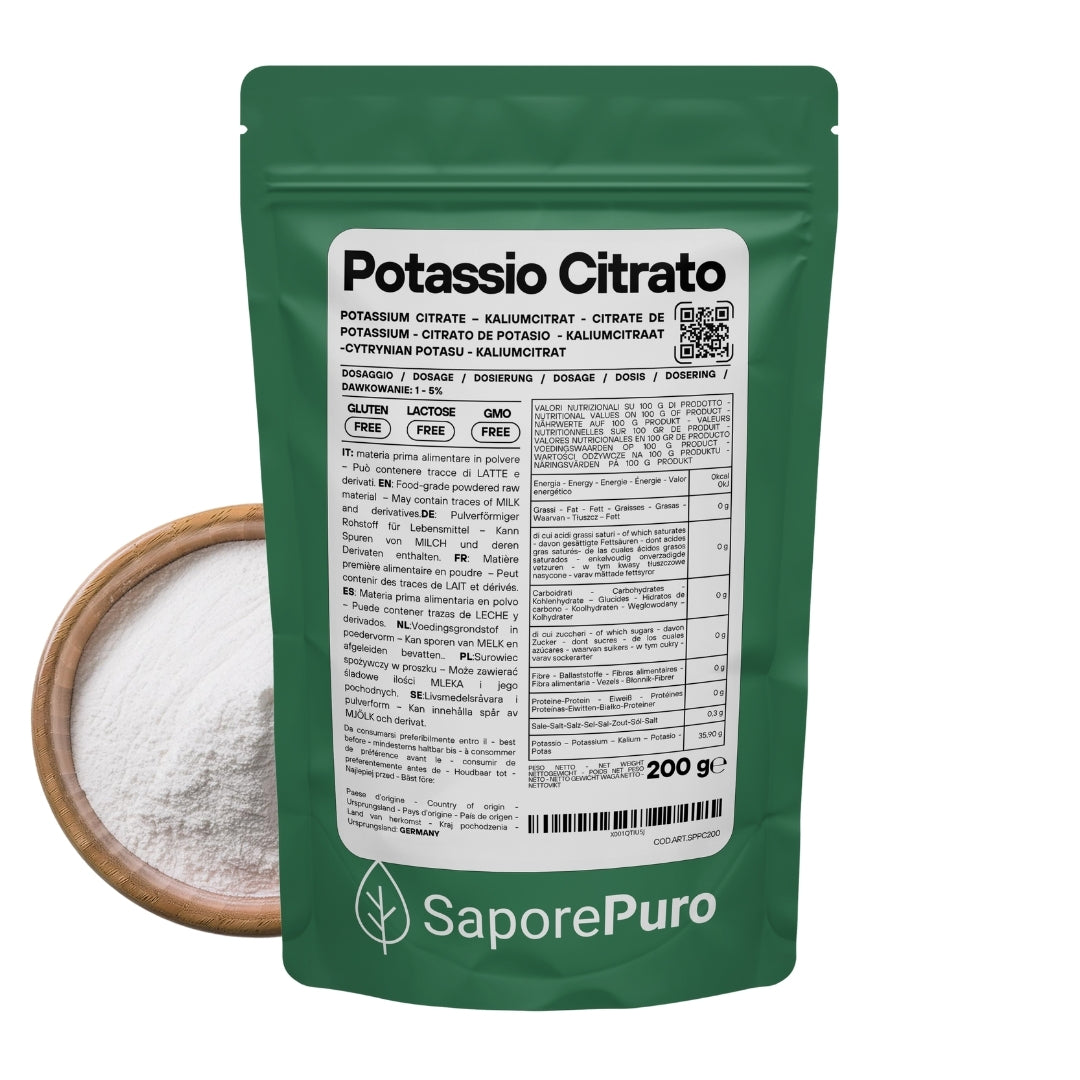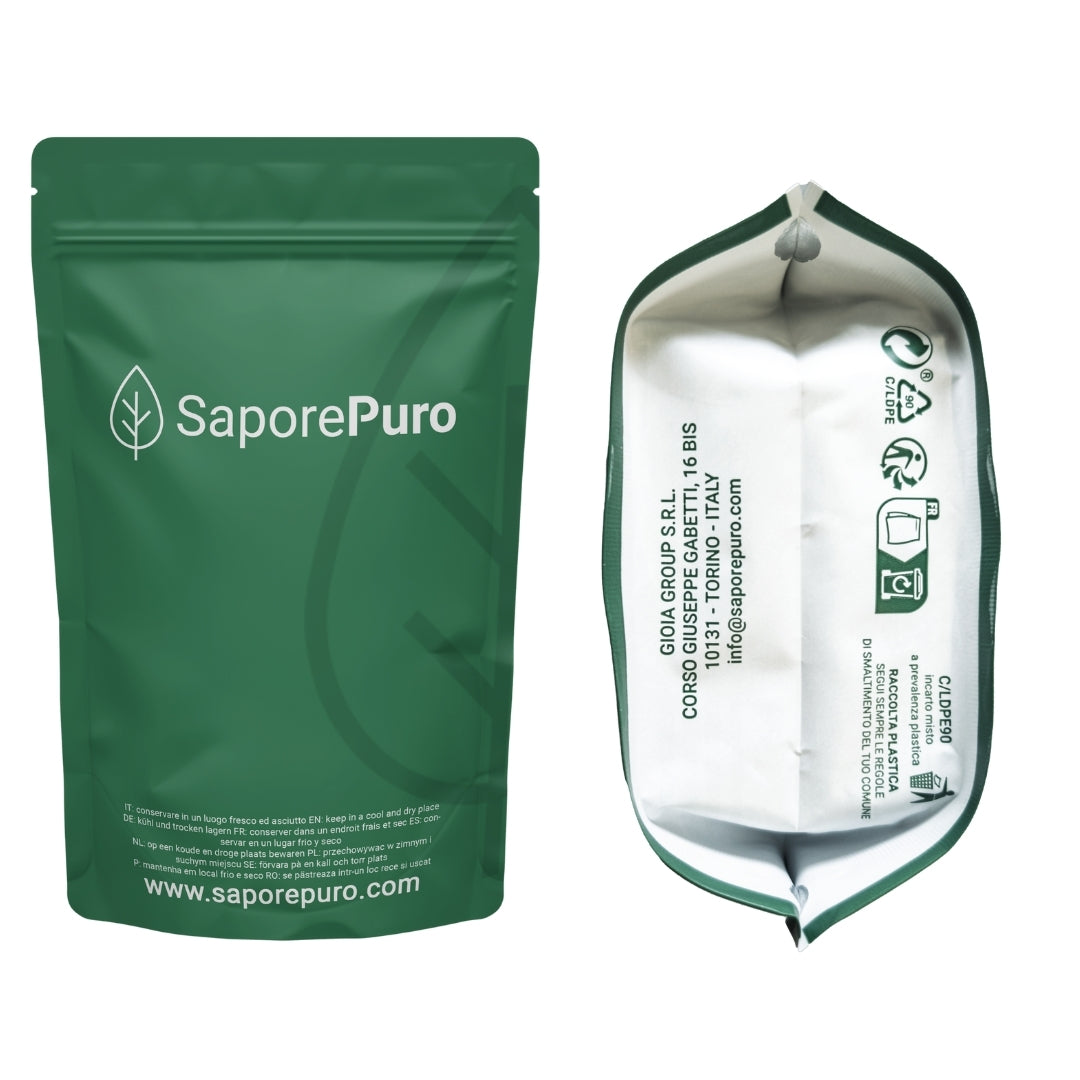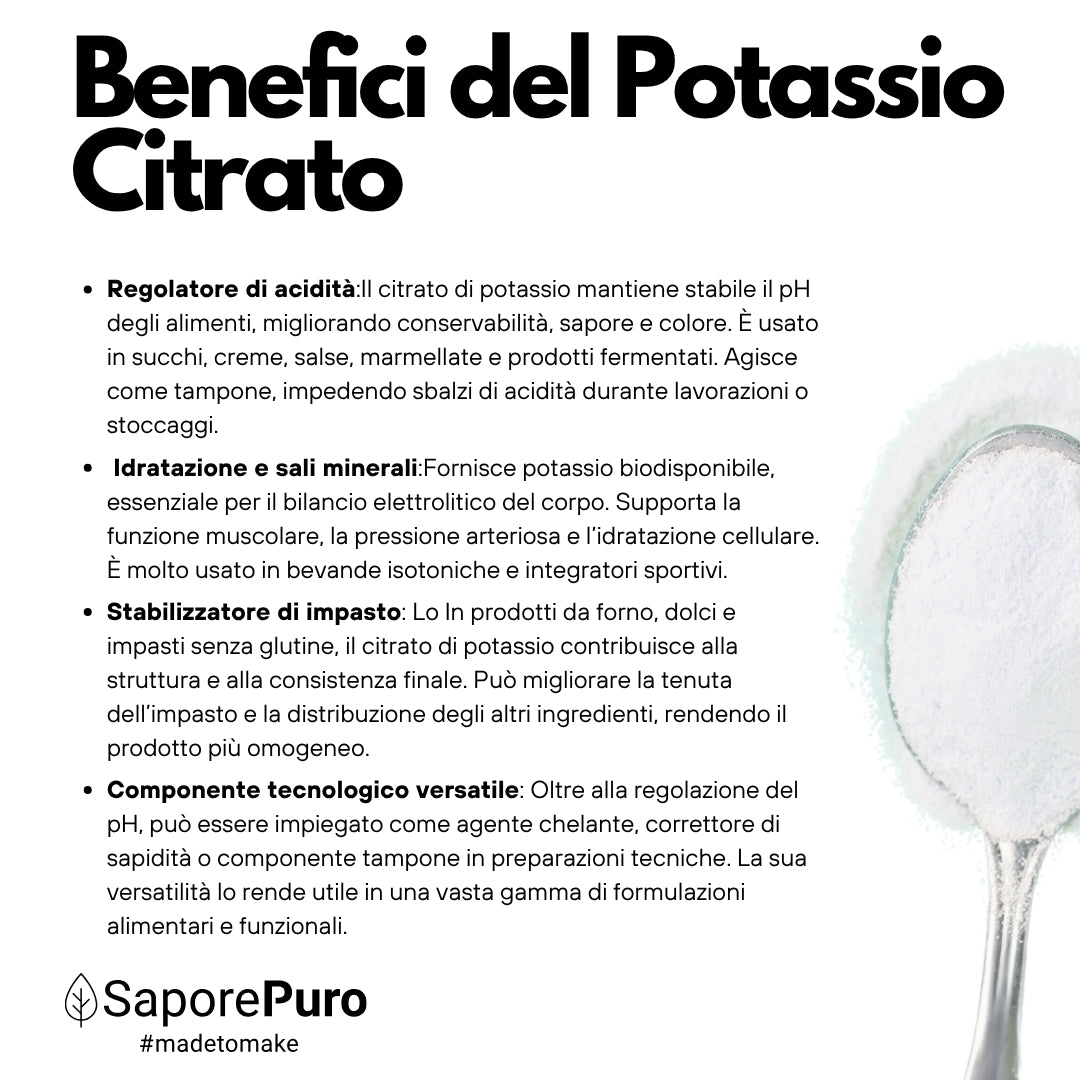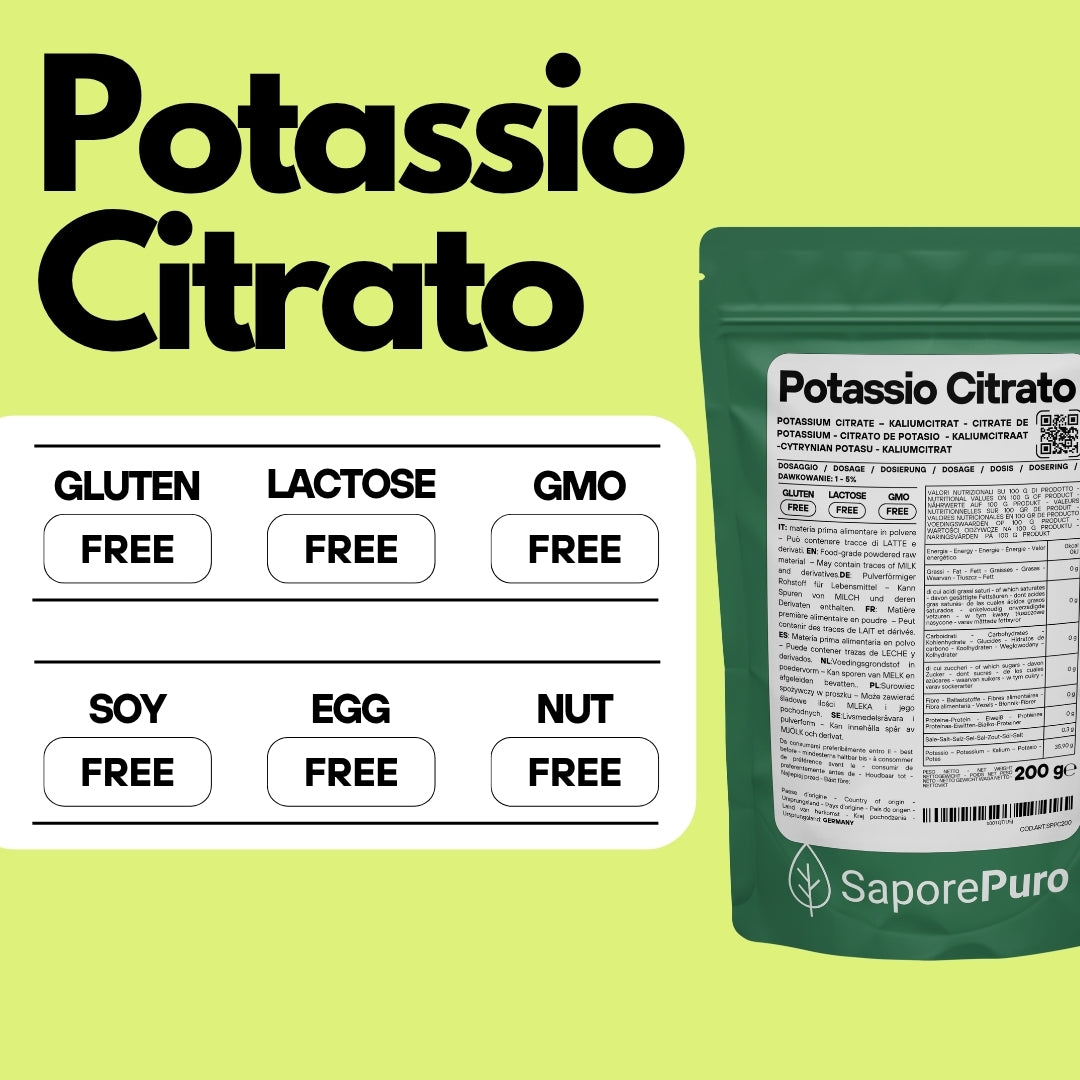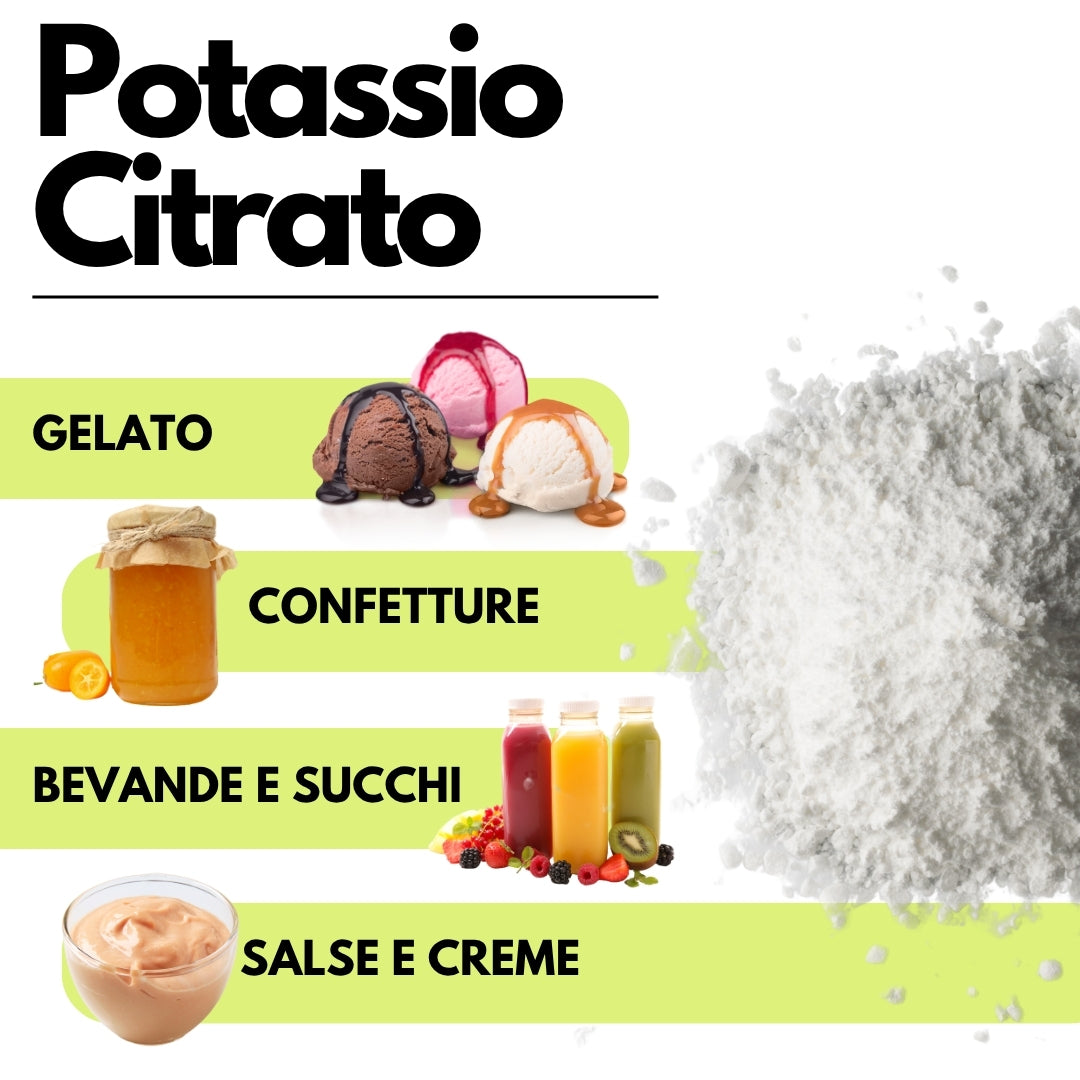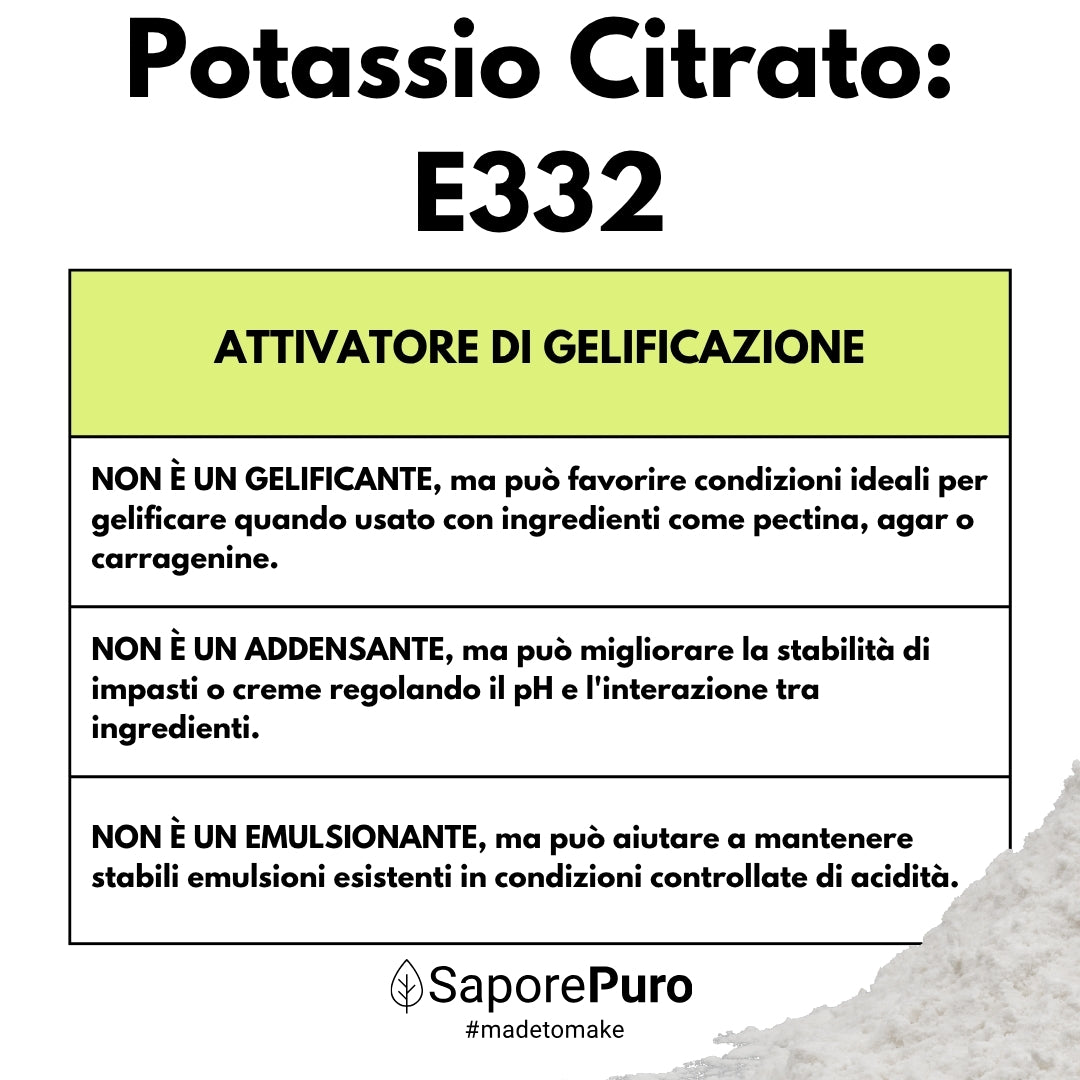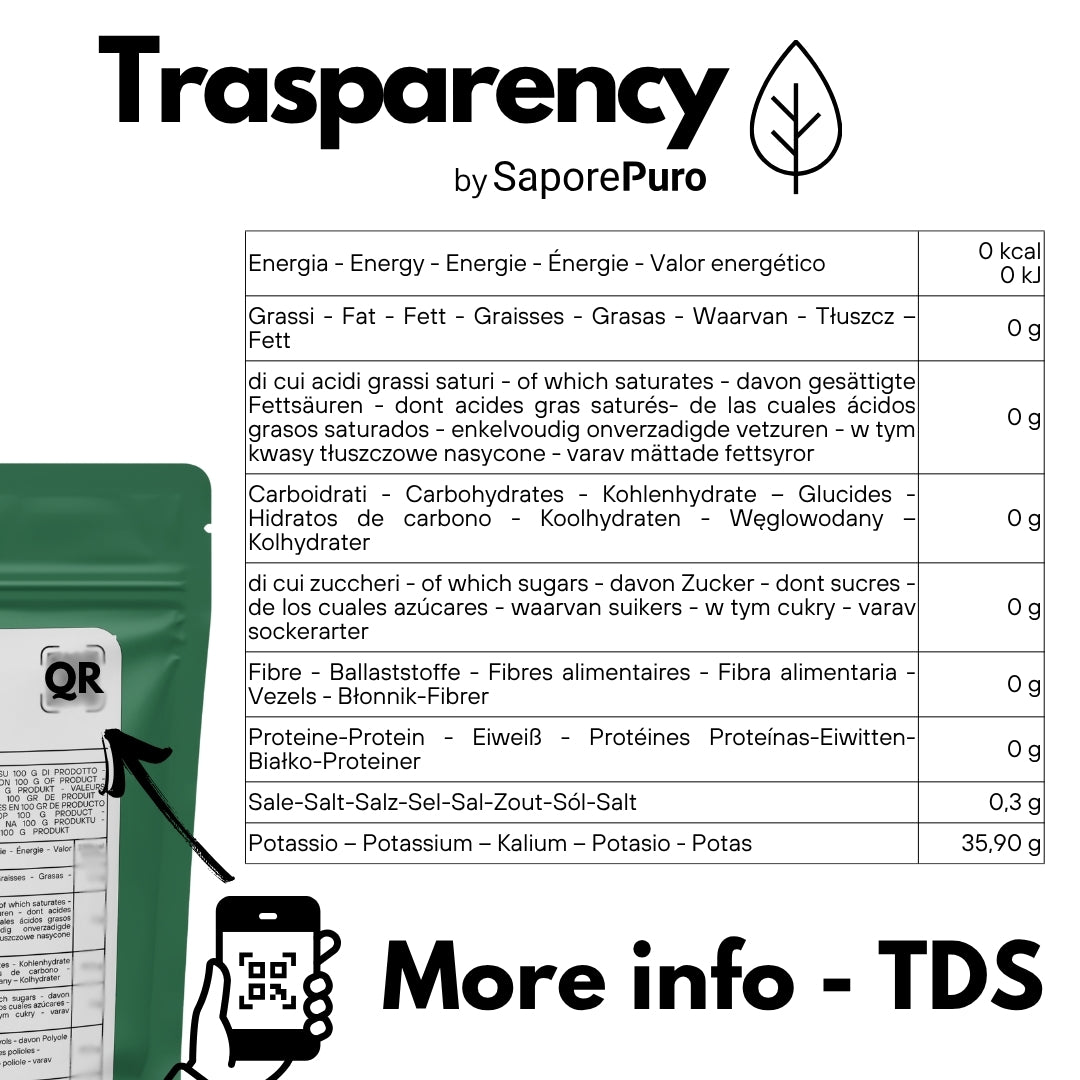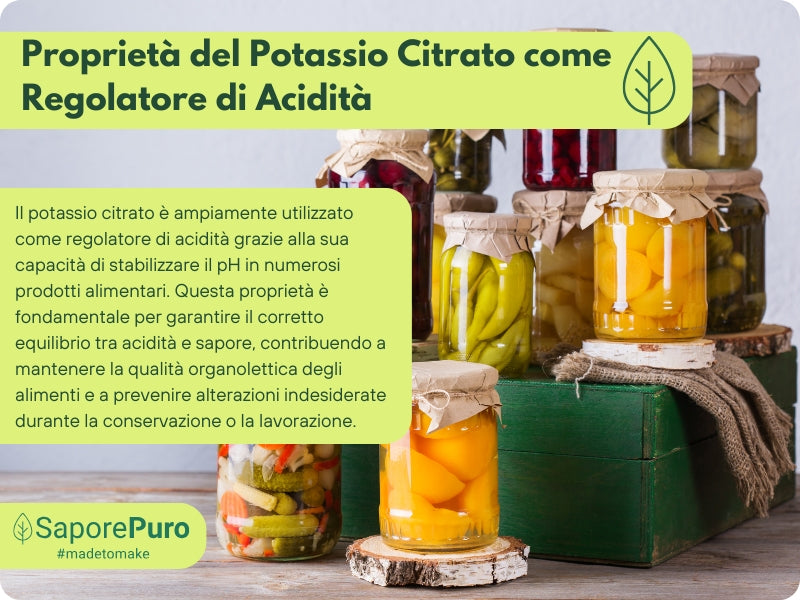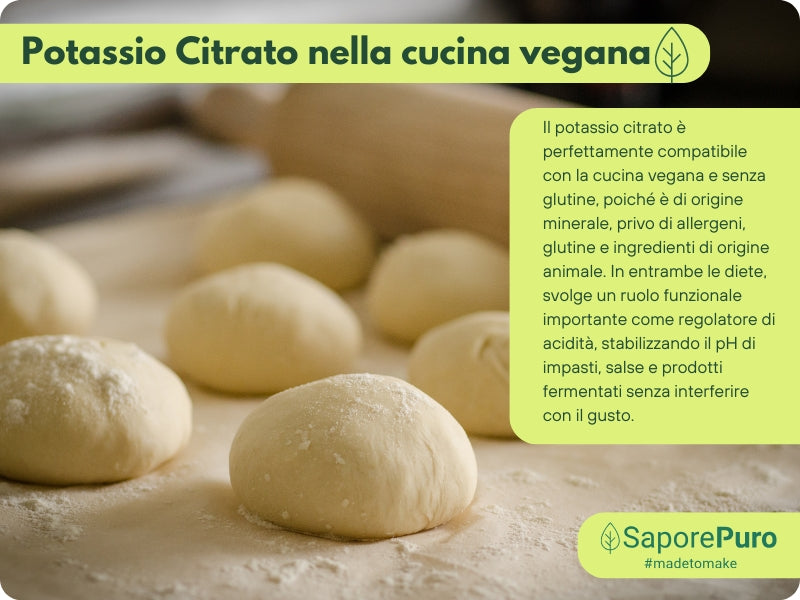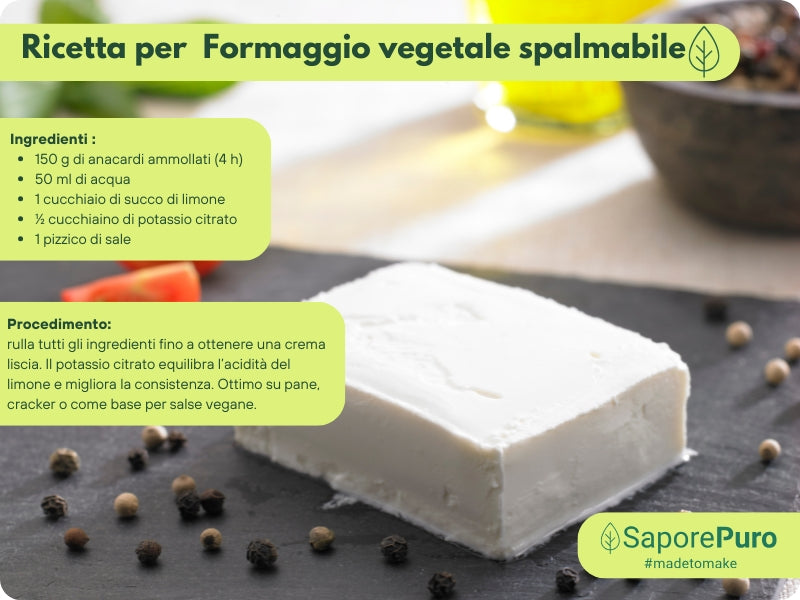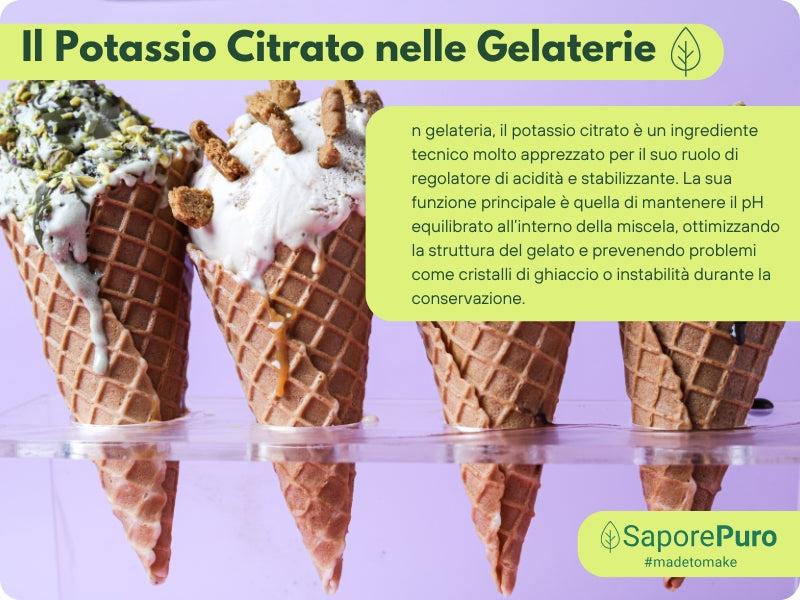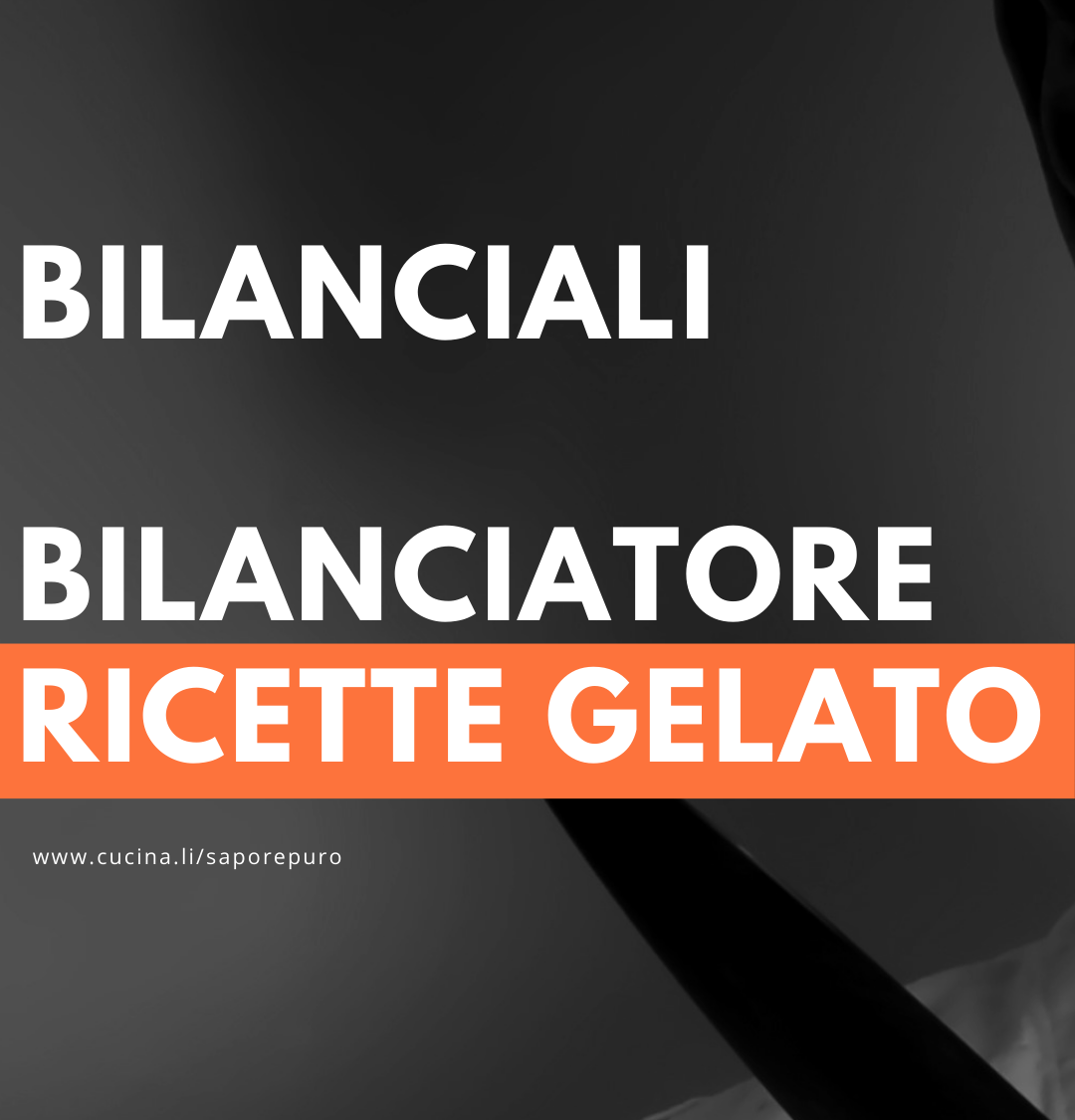SKU:SPPC200
Potassio Citrato - Citrato di Potassio - Origine GERMANIA - Sostituto del Sale
Potassio Citrato - Citrato di Potassio - Origine GERMANIA - Sostituto del Sale
Share
12 disponibili
Impossibile caricare disponibilità ritiro
| Product Details | |
|---|---|
Dosage |
1% - 5%
|
Origin of raw material |
GERMANIA
|
Data Sheet |
|
Fields of use |
Gelateria, Pasticceria, Toppings, Marmellate, Variegati e Cucina Molecolare
|
🧪 Potassio Citrato E332 – SaporePuro (200g)
📍 Origine tedesca – Confezionato a Torino
Il potassio citrato SaporePuro è ideale per applicazioni in gelateria, pasticceria, cucina tecnica e alimentazione funzionale.
🔬 Cos’è il potassio citrato?
Il potassio citrato (E332) è un sale dell’acido citrico dalla formula chimica K₃C₆H₅O₇, dal gusto lievemente salato e acidulo. Si distingue per l’elevata solubilità in acqua, che lo rende perfetto per applicazioni liquide o miscele concentrate. È utilizzato per regolare il pH, stabilizzare consistenze e migliorare la conservazione degli alimenti.
⚙️ Funzioni principali e applicazioni
✅ Regolatore di acidità e tampone per il pH
✅ Stabilizzante, emulsionante e conservante secondario
✅ Versatile e facilmente dosabile
Principali ambiti di utilizzo:
-
🥤 Bevande: migliora il gusto e l’equilibrio acido-base
-
🍦 Gelati e prodotti congelati: previene la cristallizzazione, migliora la cremosità
-
🧁 Prodotti da forno e dessert: regola il pH, migliora la struttura
-
🧀 Formaggi e latticini: migliora la consistenza e la stabilità
-
🥫 Salse, conserve e salumi: preserva colore e freschezza
📏 Dosaggi consigliati
In base all'applicazione:
-
Bevande: 0,01% – 0,05%
-
Prodotti congelati: 0,05% – 0,2%
-
Forno e dessert: 0,1% – 0,5%
-
Salse e conserve: 0,05% – 0,2%
-
Latticini: 0,05% – 0,3%
⚠️ Rispettare sempre i limiti previsti dal Regolamento (CE) 1333/2008 per garantire sicurezza e risultati ottimali.
🍅 Utilizzi alternativi
Può essere impiegato anche in ambito cosmetico e nutraceutico, o in cucina per bilanciare l’acidità di pomodori, migliorare la sapidità di piatti salati e ridurre il contenuto di sodio nelle ricette. Ottimo anche per bevande energetiche e integratori.
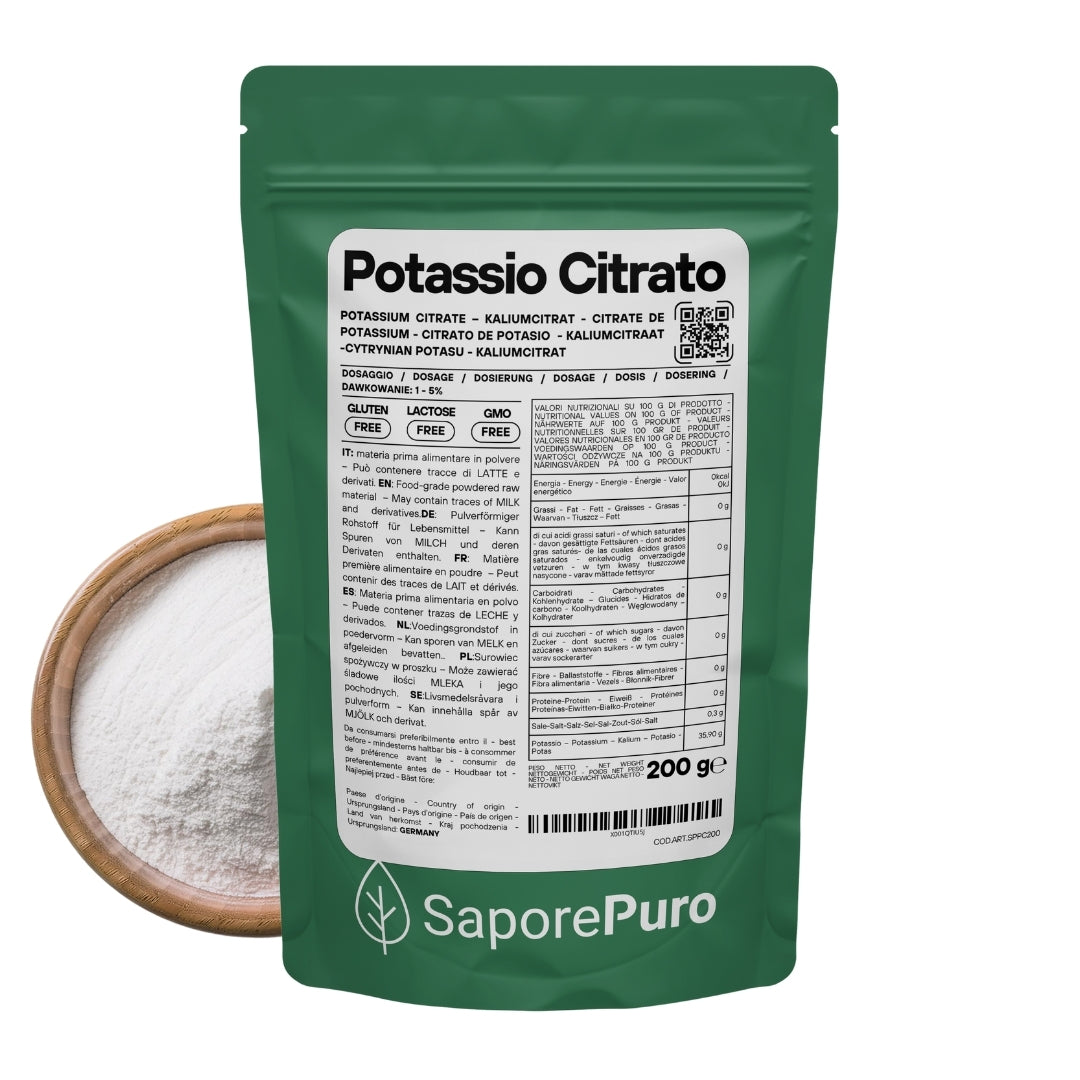
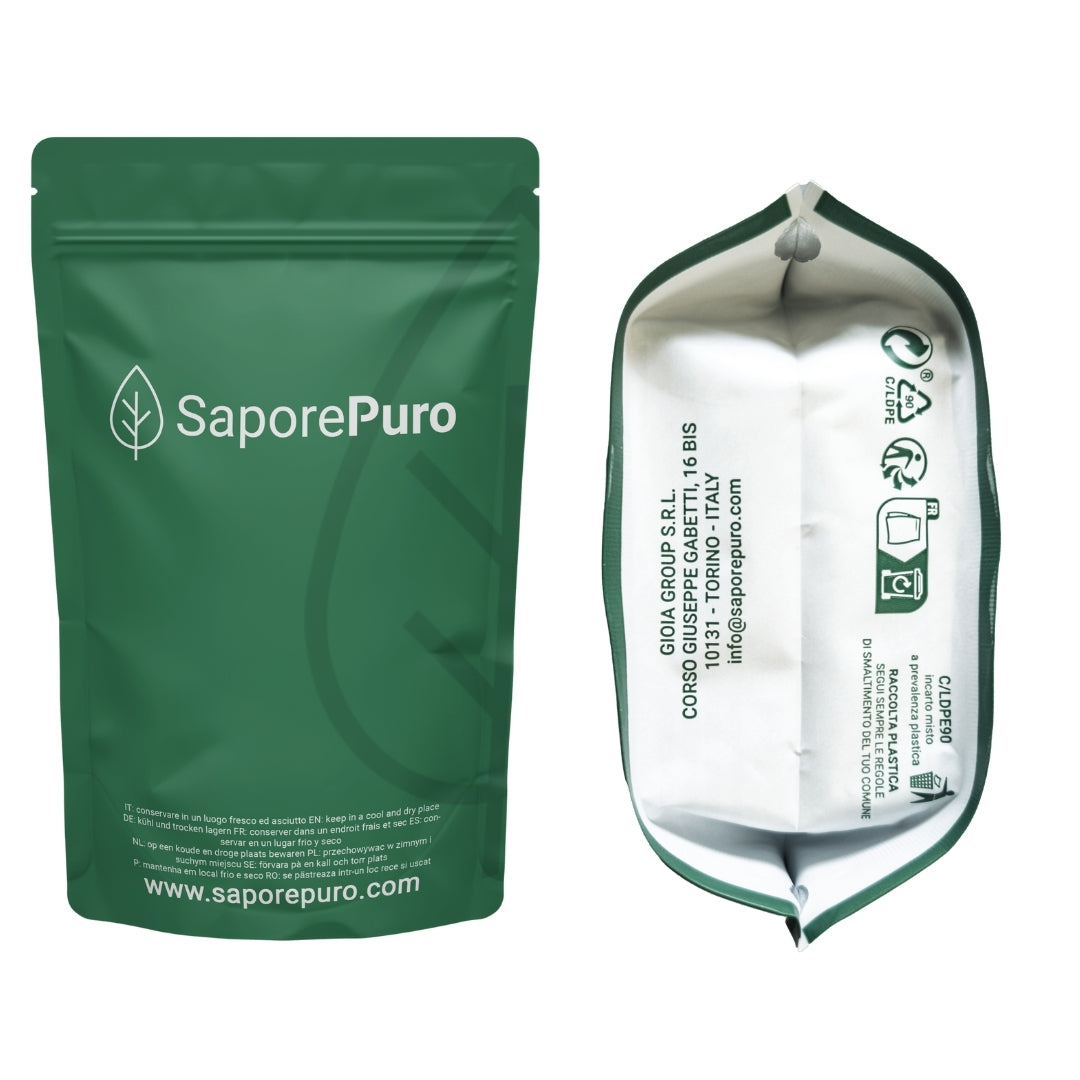
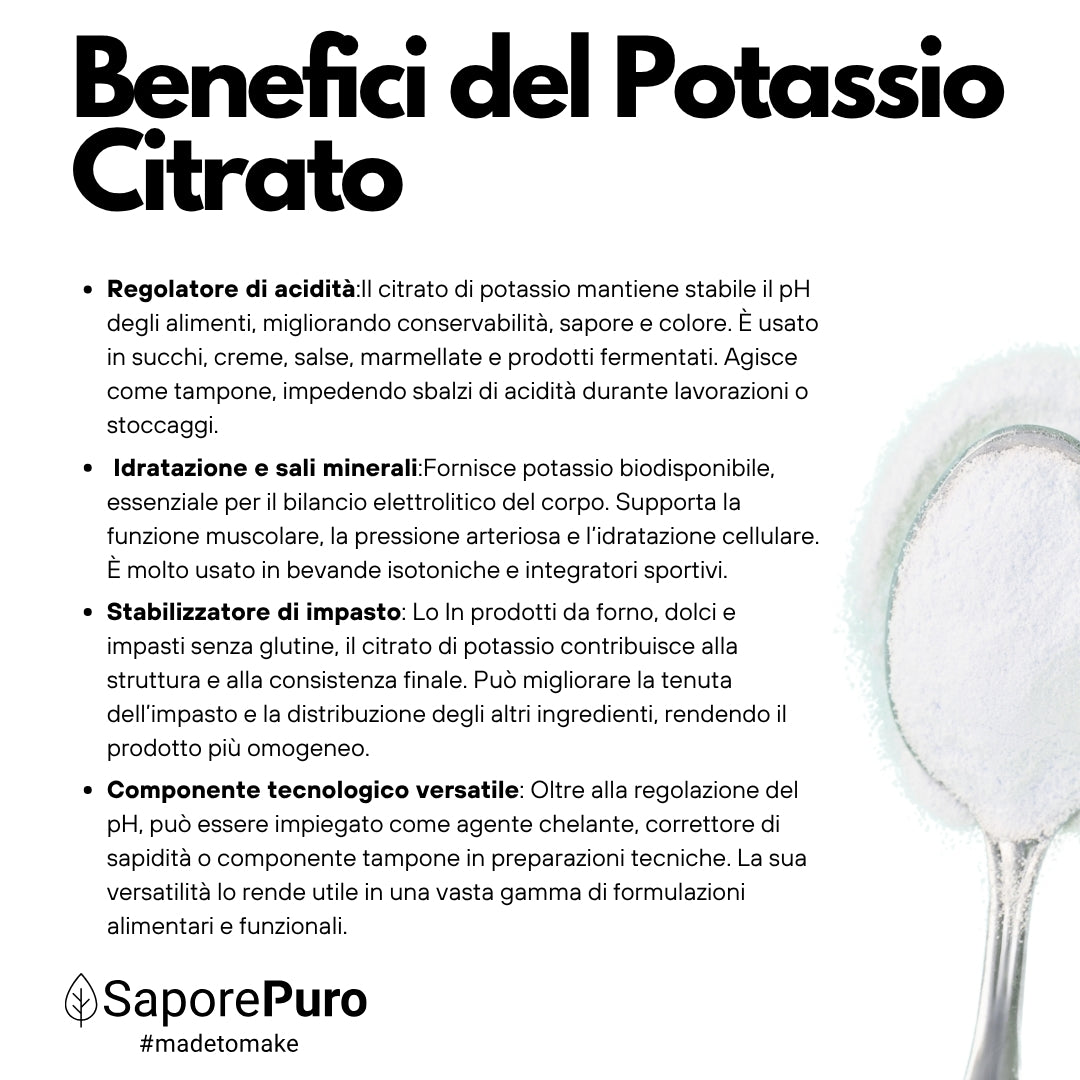
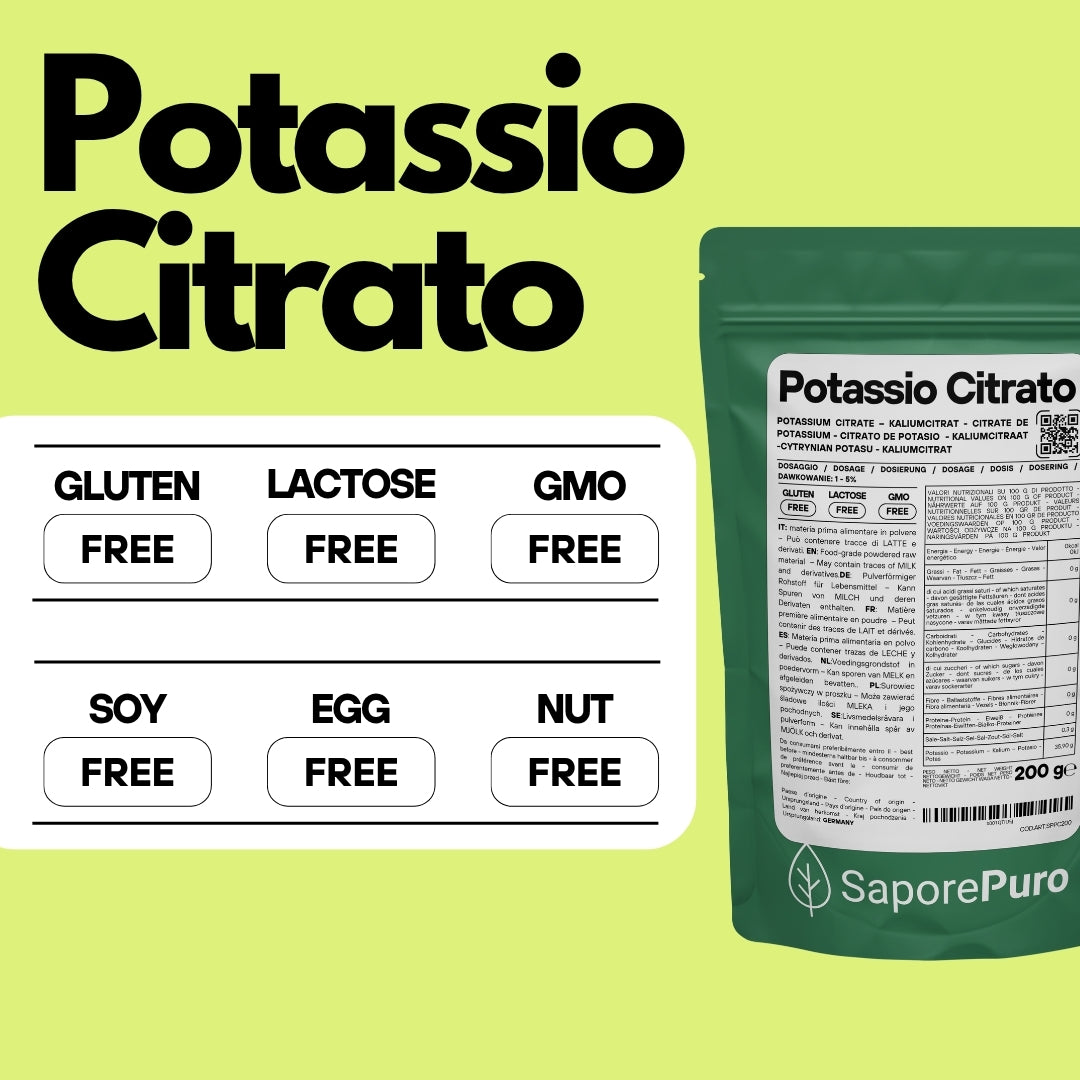
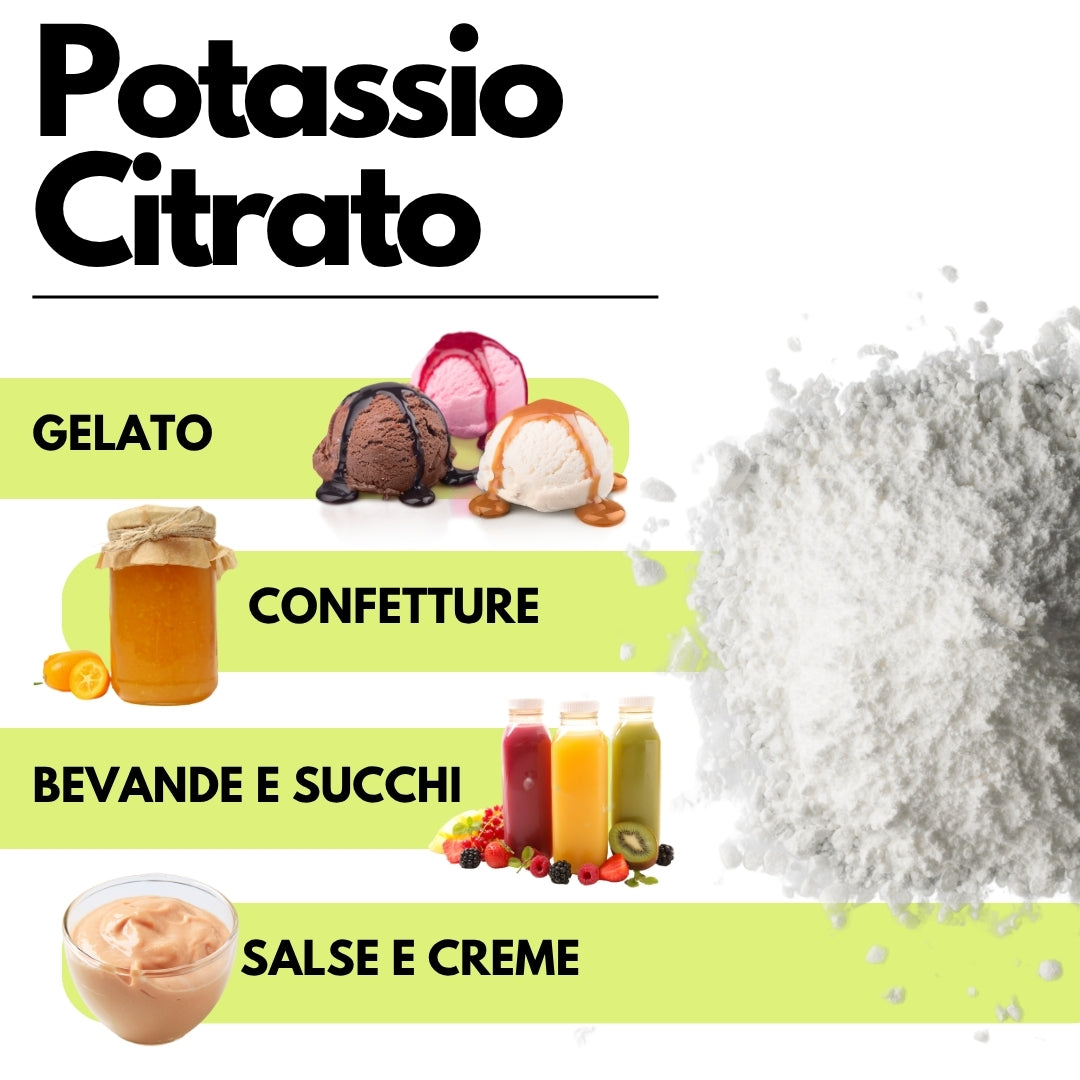
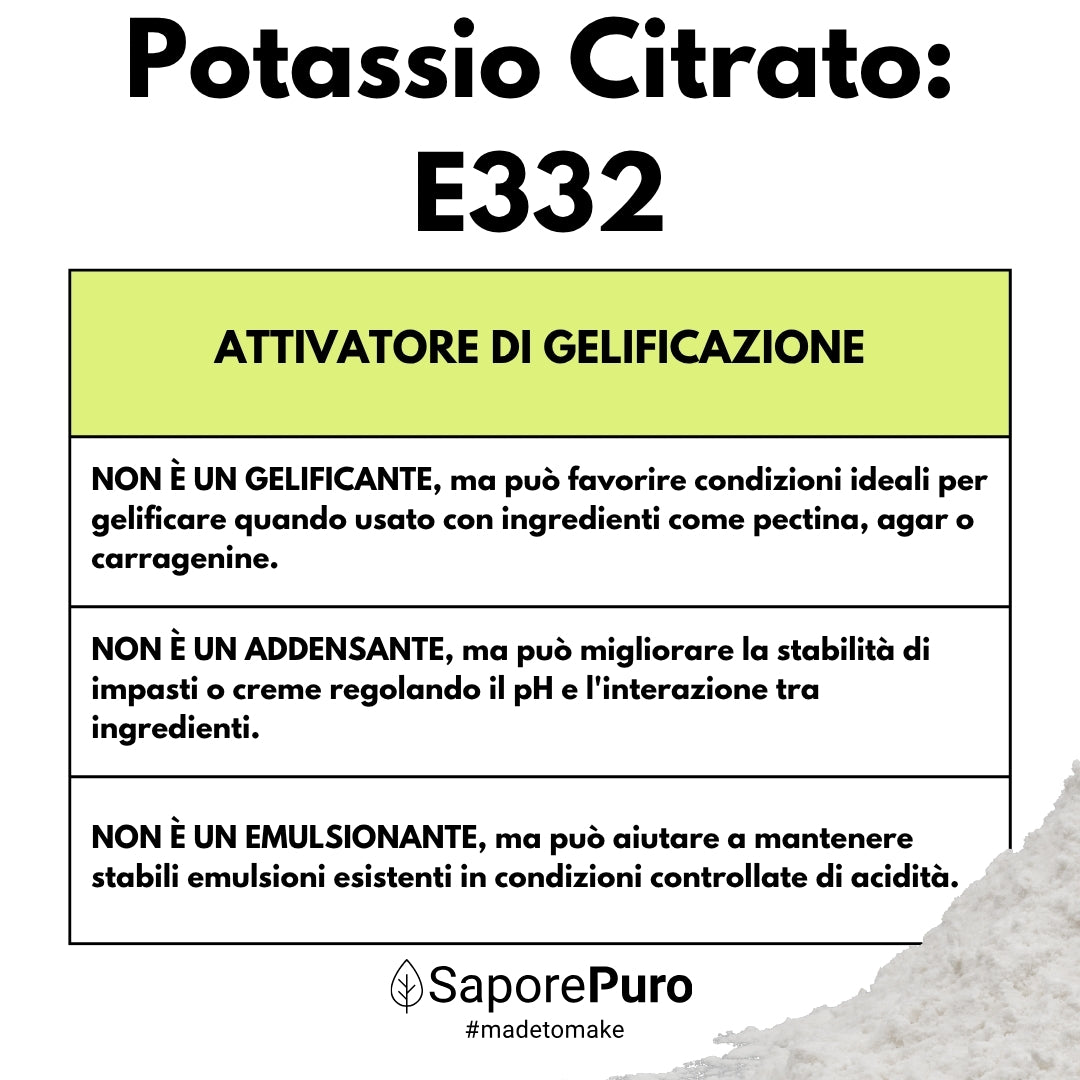
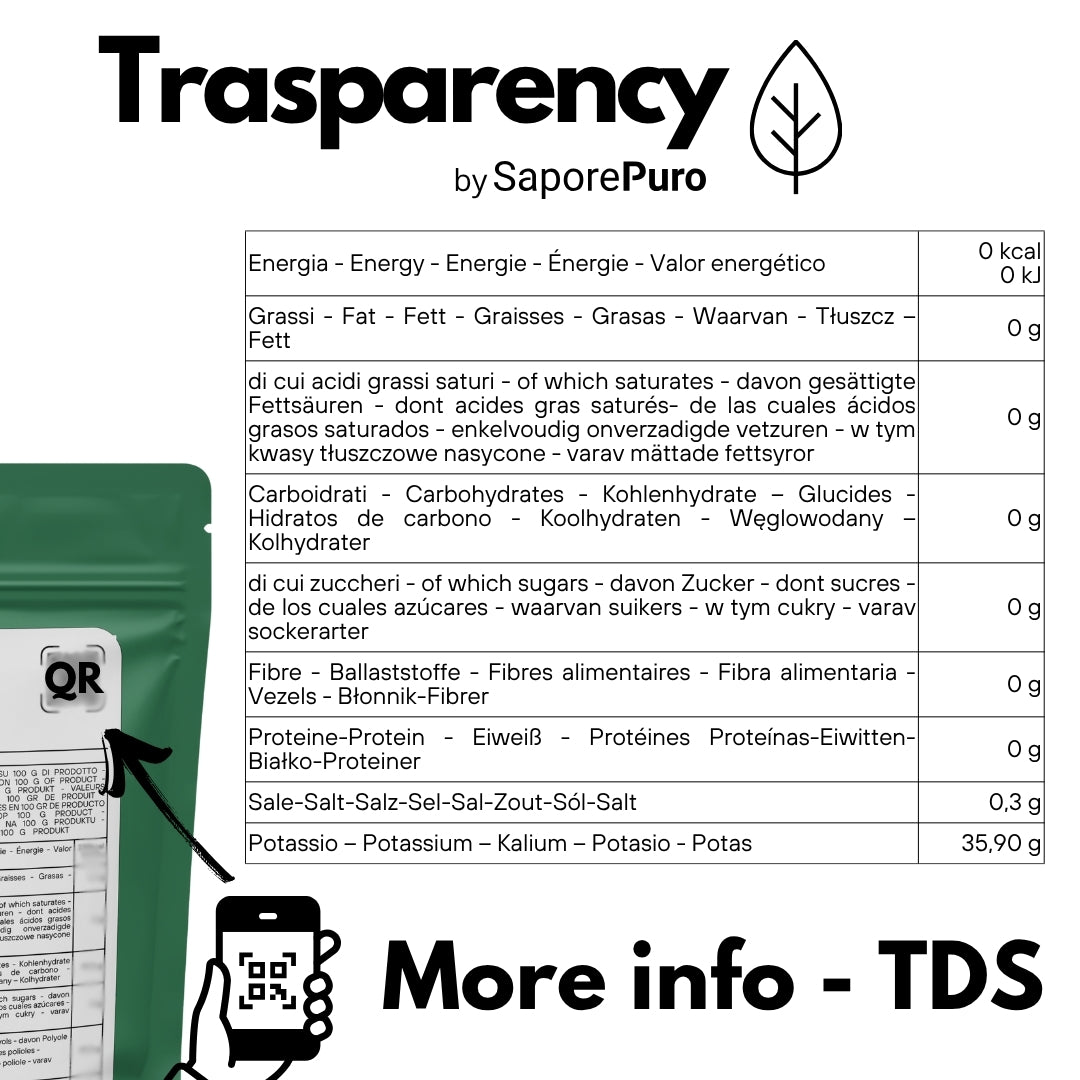
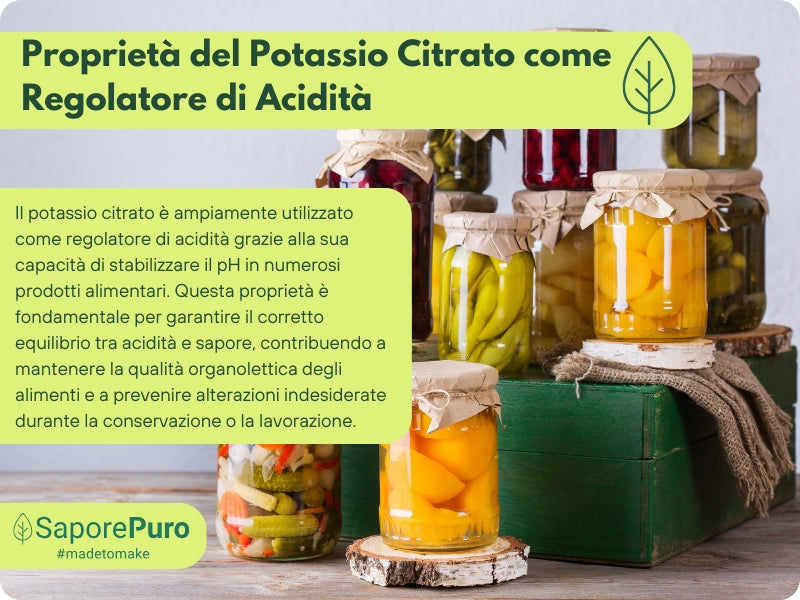
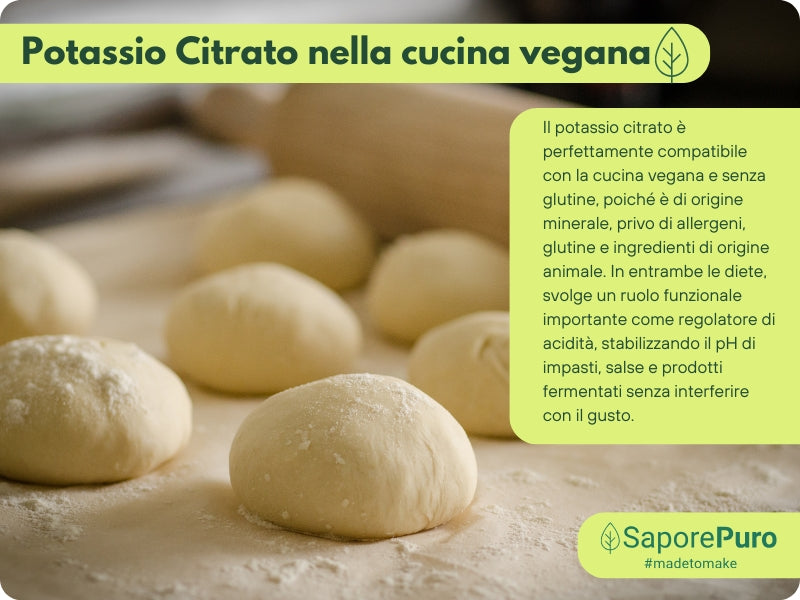
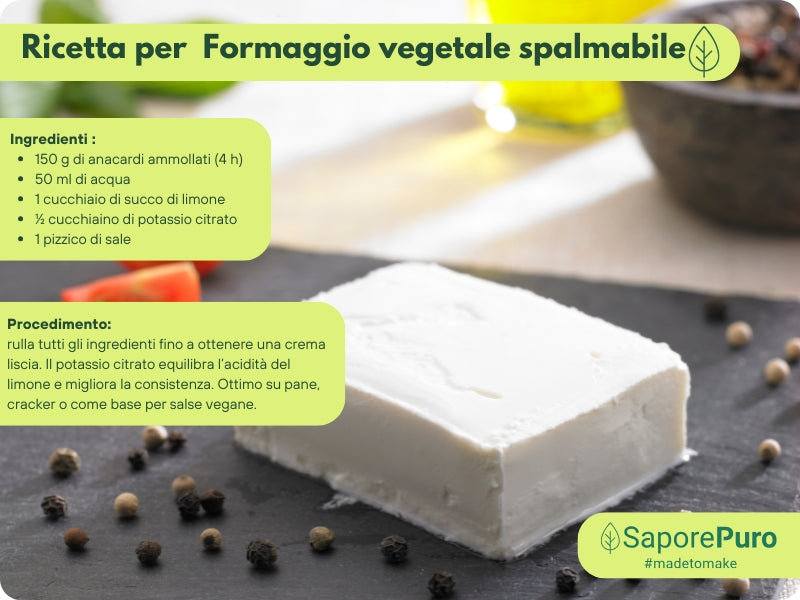
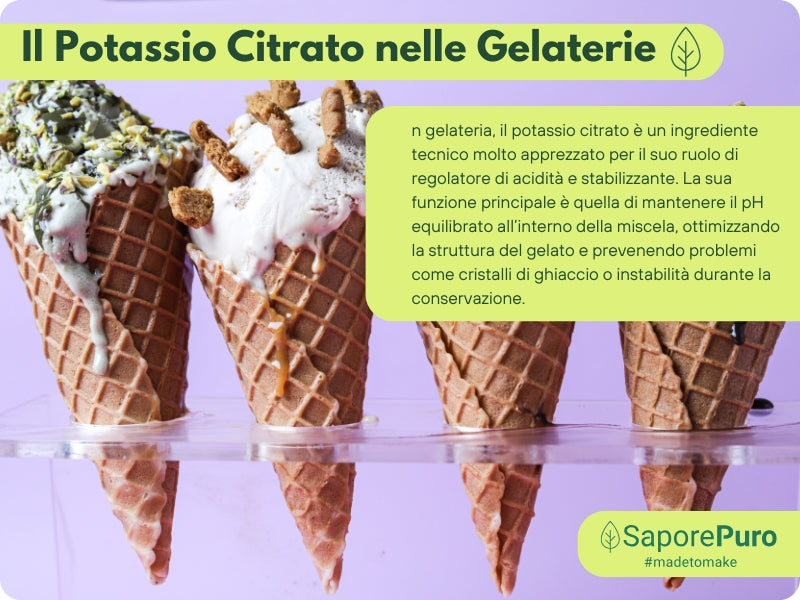
-
Delivery Guarantee
All orders are processed in 24/48h and delivered by your preferred courier service.
Whatsapp and Email notifications with tracking. -
Secure Payments
Multiple payment options available. Your details are securely encrypted within the latest technologies.
-
Certified Quality
All SaporePuro ingredients are certified according to EU regulations. We guarantee only the highest quality and certified origins.
-
Assistenza Rapida
Non vi lasciamo mai soli. Il nostro team di assistenza clienti è disponibile7 giorni su 7 per garantirti un'esperienza d'acquisto senza intoppi.

Ingredienti professionali, consegne rapide, zero pensieri.
SaporePuro è lo shop online per professionisti e casalinghi: centinaia di ingredienti tecnici, spedizioni veloci e supporto dedicato.



